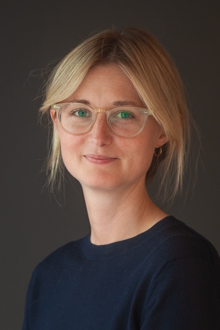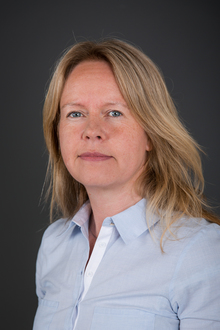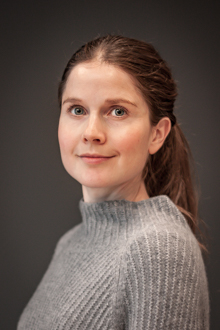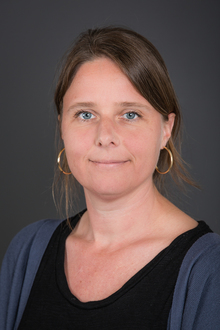The growing impacts from climate change and environmental problems raise a variety of different questions for social research. This research initiative sheds light on social science research questions within climate change and environmental policy and aims to put forward new insights on this profound challenge of our times.
- Project period
- 2022 - 2023
- Project employer
- Institute for Social Research
- Project nr.
- 10675
- Status
- Ongoing
The initiative is coordinated as an umbrella project with experience-sharing across subprojects.
The initiative is coordinated by Harald Dale-Olsen and Vibeke Wøien Hansen.
GREENing the economy – History, Occupations, Reallocation in Norway (greenhorn)
Following the Paris Agreement on climate change, Norway and most other UN-countries are committed to significant emission reductions by 2050. In addition, many countries face a series of nature and environmental goals and obligations. Achieving this goal requires careful assessment of challenges and opportunities as well as measures that promote a green transition towards a clean and sustainable economy. A primary objective among policymakers is that the transition should generate jobs, economic growth, promote trade and good living conditions, but these consequences are yet to be known.
We apply administrative register data on occupations and firms to study whether industries, occupations and firms differ in terms of development, location, job creation and job reallocation depending on greenness, where the greenness of industries and occupations are based on information on industry-specific pollution and environmental damage as well as the greenness of tasks and skills using O*NET. We apply both a binary (green/non-green) and a continuous definition (greenness). Another approach is to apply the administrative register data on patents, and their textual information. For innovations, we can use the CPC-classification of patents to classify patents as green (“clean technologies”) or other. We will also explore alternative definitions based on textual analyses (from key phrases in patents).
Subproject 1 builds on results and data from the NFR project «Power, structure and technology (PST)». Data on occupations, enterprises and industry codes are obtained from this project.
Participants
|
Harald Dale-Olsen |
Erling Barth |
 Pål Schøne Pål SchøneResearch Professor Institute for Social Research |
 Kjersti Misje Østbakken Kjersti Misje ØstbakkenResearch Director, Work and Welfare Institute for Social Research |
Climate communication, Trust, and Emotions: Effects on Attitudes and Motivation for Behavioral Change
The aim of the subproject is to study the effect of different messages on attitudes toward climate, and willingness to change behavior in a climate-friendly direction. The methodological approach is a survey experiment, with activation of emotions and trust as mediating mechanisms. We will develop four different vignettes that we expect will activate hope, fear, anger and a combination of fear and hope, respectively. These are expected to have different effects on attitudes and willingness to change behavior in different groups.
Deltagere
|
Audun Fladmoe |
Dag Wollebæk |
Media and the framing of climate change. A study of how local and national media covered the IPCC’s sixth assessment report
A major challenge for the cause of preventing climate change is that climate change can seem abstract and distant to people in their everyday lives. The media may play a role as translators, by putting climate change on the agenda and by presenting the consequences of climate change, as well as potential measures. Knowledge about how national and local media fill this role is scarce, as well as insights in which links are made to other political issues or agendas. For example, does local news coverage more often emphasize consequences in terms of transport, personal lifestyles or the labour market than national news coverage?
This pilot project uses big content data to analyze the coverage of the IPCC’s sixth assessment report in national and local media in Norway. The aim is twofold: to describe differences between national and local news coverage, and to explain variations at the local level coverage based on differences in municipal characteristics. Among the factors we study are local vulnerability to climate change, and expected local consequences of climate measures (for business, labour market or nature).
Participants
|
Stine Hesstvedt |
Kari Steen-Johnsen |
Unpacking the relationship between climate change response and party responsiveness towards voters and interest groups: Is the call for urgent climate change evident in voter-party-group relations across countries?
Is party responsiveness towards voters and interest groups, over time, across parties, and countries, particular strong on climate and environmental policies as compared to other political domains? We answer this question by combining data from voter and interest group surveys with parties’ policy positions over time.
How to respond adequately to climate change is the major collective action problem of our time. While the call for climate action is strong among voters and interest groups in many countries, political parties are often accused of giving more attention to short-term problems. Given the urgency of climate change and the magnitude of its implications, the climate policy field is a particularly good case for testing whether parties respond to voters and interest groups, and whether they do so to a larger extent in this field, compared to other policy fields across countries.
Participants
|
Vibeke Wøien Hansen |
Kari Steen-Johnsen |
 Mads Thau Mads ThauSenior Research Fellow Institute for Social Research
|
Moral framing of climate messages and voters' attitudes
Voters are divided when it comes to support for measures to counter climate change. Can moral psychological perspectives help explain this variation? Previous research suggests that the moral framing of a political message can influence how citizens receive that message depending on their own moral values. If such findings are prove to be robust, this has implications for how climate policies should be communicated to gain broad support. Our project builds on this research.
The subproject will investigate two hypotheses. The first is that climate-related content in Norwegian news media is morally charged with "progressive" or universalist values (e.g., care, international solidarity and justice) and to a lesser extent reflects more conservative or traditional values (e.g., loyalty to local community or nation). To investigate this, we analyze a selection of commentary and editorials from Norwegian news media. The second hypothesis is that people's acceptance of climate policy measures increases if the message is framed in a way that corresponds to their own moral values. This will be investigated by means of survey experiments where the respondents are randomized to read different texts that contain climate policy messages with different moral valuations before answering questions about their attitudes to climate measures.
Participants
|
Kjersti Thorbjørnsrud |
Johannes Due Enstad |
The normative role of civil society organizations in climate governance
Norms are fundamental for understanding human action and thus also the condition of collective action. Despite the fact that they are relatively fixed structures, norms are malleable so that actors can change the norms in the population through both conscious and unconscious actions. Certain norms can thus contribute to societies being able to solve the problems of collective action.
Civil society organizations are a type of actor that can help shape the population's norms. They play an important role in the climate issue in Norway, both as actors who conduct extensive form of political advocacy work and as emergency response organizations that deal with the consequences of climate change. Civil society organizations have a unique position in Norwegian society by playing a mediating role between the state and citizens. In this project, we investigate which strategies, consciously or unconsciously, civil society organizations use to influence society's norm formation in the climate field.
Through the machine learning technique NLP (machine learning-based natural language processing), we will examine the normative role of civil society organizations as it unfolds in social media. We will also use the Qualitative Comparative Method (QCA) to analyze the role played by civil society actors in Norwegian media reports.
Participants
|
Håkon Solbu Trætteberg |
Marte Winsvold |
 Bernard Enjolras Bernard EnjolrasResearch Professor, Director Center for research on civil society and voluntary sector |
How is the relationship between climate migration and climate aid understood?
Norway is a donor country for aid. Because of the increasing climate changes, the Norwegian government has promised to double the funding for climate aid by 2026, from 7 to 14 billion kroner. Norad, the Norwegian agency for development cooperation, assumes that climate change will soon be the dominating topic of Norwegian aid.
That people must move due to disasters and swindling livelihoods is often highlighted as one of the largest potential social consequences of climate change. According to Norad, Norwegian climate aid is channelled towards initiatives which will aid people to adapt to the consequences of climate changes where they live, and by so doing help to prevent that people will have to move.
While climate change adaptation is a relatively new topic within Norwegian aid, countries like Bangladesh, which is an aid receiving country, have already implemented a range of climate change adaptation initiatives. Here, migration as a consequence of climate change is central to the discussion of how successful climate change adaptation is deemed to be. It is therefore of interest to examine how conceptualizations of climate migration and assumptions of how aid can assist people who are vulnerable to climate change in the Norwegian aid administration match with the understandings of aid workers who are working with these questions in Bangladesh. This is important because different expectations between donors and implementation partners may cause aid to be less efficient.
Participants
|
Kathinka Fossum Evertsen |
Marte Winsvold |













